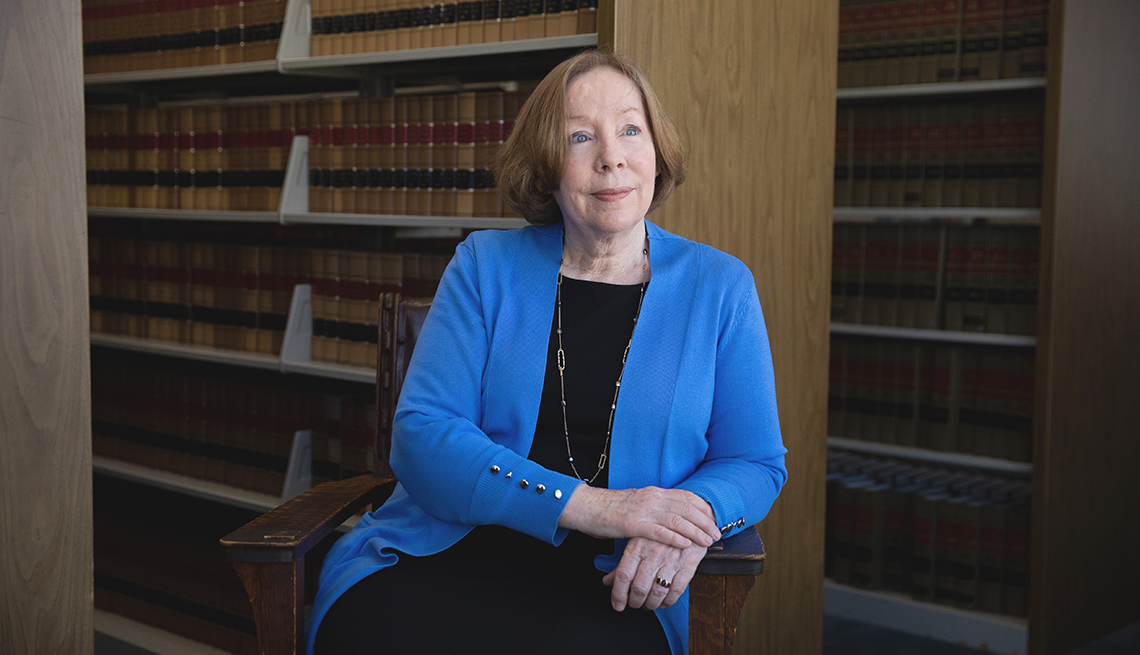AARP Hearing Center

When Mary Freeley became director of the Massachusetts Attorney General’s Office’s new Elder Justice Unit last August, she’d already spent 25 years investigating the ways companies take advantage of consumers. She’d worked cases in the health care, pharmaceutical, education and financial services sectors. She’d tackled Medicaid and charity fraud.
But even she didn’t quite realize how frequently older Massachusetts residents were being targeted and victimized.
On a regular basis, Freeley says, “We hear of a significant scam that harms — financially — an older person.”
The inspiration for the new unit came to Attorney General Andrea Joy Campbell (D), who was elected in 2022 after a campaign in which she heard “hundreds of stories” about older adults being exploited, Freeley says.
They’re cases similar to that of a Springfield woman indicted by Campbell’s office in November, accused of stealing money from older nursing home residents. According to the attorney general’s office, the woman forged signatures to grant herself a false power of attorney, and then used that to steal from one victim’s bank account; she also wrote checks worth “tens of thousands of dollars” from her victims to herself, authorities say. As of press time, the case was pending.
The new unit brings together elder-protection resources from the attorney general’s office’s various bureaus and is the central point of contact for older residents seeking help. Freeley’s mandate is to enhance the prosecution of abuse against older adults, engage with and educate older adults, and advocate for legislation to protect them.
Scams ‘frequent,’ ‘pervasive’
To build the unit, Freeley has worked on recruiting staff; she also meets with advisory groups and those working in elder and social services to learn what they see and hear every day.
What’s happening, she says, is “frequent” and “pervasive.”
In 2023, Massachusetts consumers filed more than 87,000 fraud, identity theft and other reports, according to the Federal Trade Commission. Fraud losses were $142.3 million — likely a massive undercount.
“Underreporting happens because people don’t even know they’ve experienced a crime,” says Kathy Stokes, AARP’s director of fraud prevention programs.
It also has to do with shame.
“We tend to blame victims of financial fraud in ways we don’t blame crime victims [who] are dealing with property or violent crimes,” Stokes says.
Freeley says everyone likely knows someone affected by a scam. She’s come close herself: In 2023, she was on the phone with her then-90-year-old mother when a call came in from someone claiming to be from her mother’s credit card company.
“I got on the phone … and I was taken in so much that I almost gave them the information that they were looking for,” Freeley says. “And it was a scam.”
Freeley says there are many types of fraud — from the grandparent scam, in which a con artist calls an older person pretending to be a grandchild in need of money, to cryptocurrency scams, to fake investment opportunities.
She says among the most concerning ones are impostor scams, in which people pretend to be representatives of banks, credit card companies or government agencies — the kind that almost snared her and her mother.
Among the best pieces of advice she offers is also the simplest: Slow down — and don’t get caught up in the moment.
Scammers use a “playbook to get you into a heightened emotional state,” says AARP’s Stokes. “If I’m going to react out of fear or anger or panic or excitement, I’m bypassing logical thinking.”
Like Stokes, Freeley wants people to know that being a victim of fraud is not their fault. The scammers are “very sophisticated,” she says. “They know exactly what to say to make you think that you’re talking to either your bank or someone legitimate.”
To learn more or to report fraud, call the Attorney General’s Elder Hotline at 888-243-5337, or visit its site online.
Michelle Cerulli McAdams is based in Massachusetts and has written for the Bulletin for 10 years.
More on fraud































































